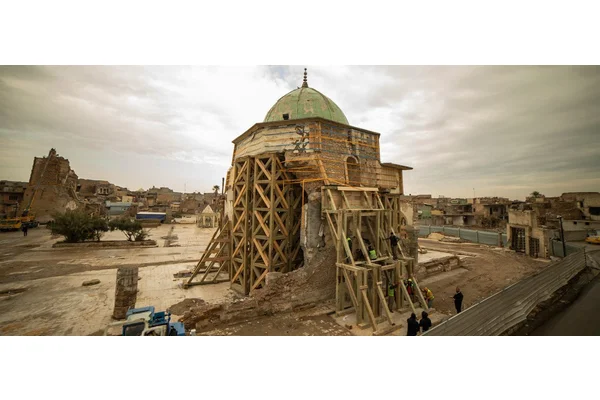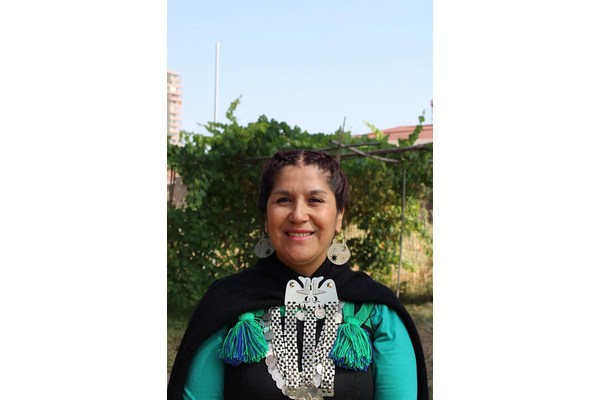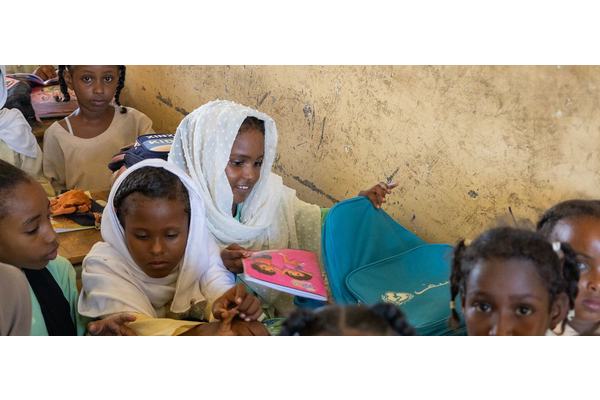India: Climate emergency message resonates at world’s largest literature festival – UN News special report from Jaipur | UN News
Against the backdrop of India’s famed “pink city” of Jaipur, the world’s largest literature festival hosted the UN’s top representative in the country on Monday, who told audience members attending a special session on the climate emergency, that the Organization is working flat out to slow the pace of damaging climate change.
“So the science is out there and as an inter-governmental body we bring the nation states together to address the problem that’s staring us in the face, validated by the science.”
The session heard some startling stories of people living in India’s Ladakh region who are gravely affected by Climate crisis.
Solar Energy Innovator, Educationist and Managing Director of Himalayan Institute of Alternatives in Ladakh, Sonam Wangchuk said: “Up in the mountains, across the Himalayas, particularly in Ladakh, our glaciers are melting and while we always had water shortages, now we are seeing droughts in the spring season.
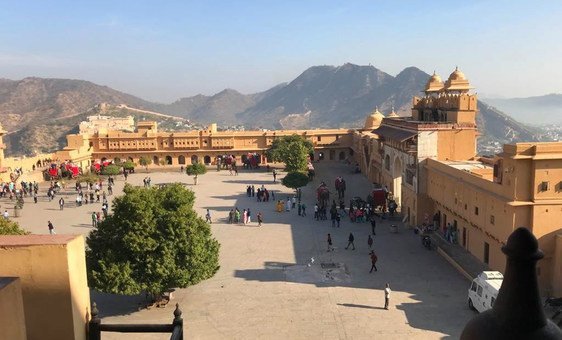
“I know at least two villages where people had to abandon the whole village due to water (shortages). These droughts are now accompanied by flash floods in autumn.”
In 2006, while volunteering in one such village that was washed away, leading to many deaths, he had asked villagers when the last flash flooding had occurred, but “they didn’t remember. The same village had another flash flood in 2010, then in 2015 and then another one in 2017. So it’s now becoming as frequent as that.”
‘Live simply’
He appealed to the people living in the plains and the cities to be responsible and “live simply” so that the people of the mountains in turn, can ‘simply live’.
Managing Editor of online journal PARI, Namita Waikar, who is chronicling the stories of how vulnerable populations across India are being most affected by climate change for the upcoming UNDP Human Development Report, chimed in with other first-hand accounts of how life is being adversely affected in the coastal cities.
“In the rural areas, there are communities in Tamil Nadu where seaweed farmers are forced to change livelihoods due to fast disappearing seaweeds.
“Similarly, in places like Delhi, inland fishing communities are catching dead fish. What they told me was heart breaking.” Fisherman told her that if they lay the net at night, all they catch are the “freshest of the dead fish” in the morning. Keeping sewage and industrial waste out of rivers and coastal areas in an urgent priority, she said” “Another fisherwoman said that some of the fish they caught earlier are now only seen on the Discovery channel. That clearly explains the gravity of the situation.”
Writer, educator and filmmaker, Shubhangi Swarup, who is exploring ecology in her fiction, explained how she is integrating climate change themes into her work.
“Our stories have become human-centric, self-obsessed and obnoxious. We don’t have appreciation of nature and universe in our stories.
“So, I tried to write a novel where a geological fault line is the thread of the narrative. It begins with the Andaman (islands), goes to Myanmar, then Nepal and ends in Ladakh. While telling the story, I realised how ridiculous the political borders are when we are talking about solving local problems”, she said.
Profit or progress?
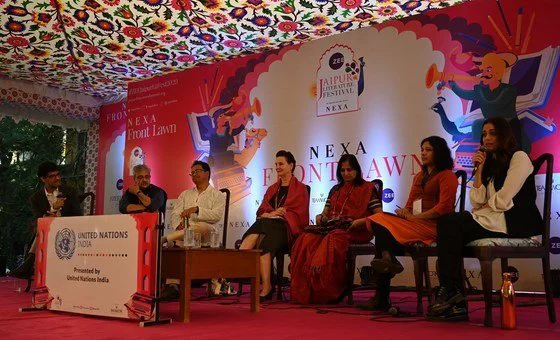
Civil Society Activist, Apoorva Oza, reiterated the need to take profit considerations out of the climate change debate: “There’s this excessive focus on measuring everything in economic terms. When I write a proposal they ask me whether I’ll double the farmers’ income. All I can tell you is that they will protect nature, they’ll sustain the environment, they’ll not over-exploit groundwater. But I can’t guarantee that I can double their incomes. I can only guarantee their progress.”
The session took a sombre turn when the famous Bollywood Actress and UN Advocate for Sustainable Development, Dia Mirza reached out to the audience and asked, “Do you have time? We just have a decade. Listen to women, listen to mothers, listen to children. And if you don’t understand science, just watch nature.”
The message was clear: everyone is responsible for creating a more environmentally sustainable world – And the arts and cultural sector is no exception.
As Moderator, Sameer Saran aptly concluded: “Since this festival is attended by the literati, stories come out of such places. If climate change becomes a part of these stories, we’ll be inspired to take better steps in mitigating climate change. Stories we tell about ourselves define our actions. And if our stories are green, then probably our future will also be green and prosperous.”
Festival attractions
The 13th year of the Jaipur Literature Festival saw a host of literary big-hitters in attendance, including Nobel Laureate Abhijit Banerjee, Pulitzer Prize Awardee Forrest Gander, Journalist Christina Lamb, the New Yorker journalist Dexter Filkins, Man Booker Prize winner Howard Jacobson, Elizabeth Gilbert and popular Indian writers like Shashi Tharoor and Javed Akhtar engaging in ideas, debate and dialogue.



